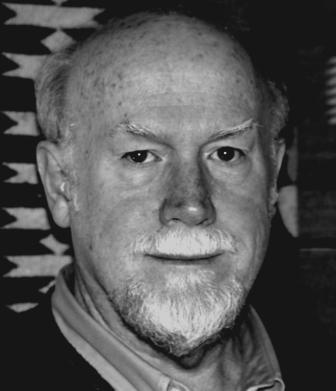
|
|
A central paradox in modern physics was paralleled nearly 2000 years ago in India, in the spiritual psychology of Patanjali 's Yoga Sutra. While psychophysical reality is, at almost all levels, completely deterministic (operating through the implacable law of karma for Patanjali, of Newtonian physics for Western science) at its heart lies a space of total freedom. The central insight of Yoga is that the true human self (purusha) is eternally free and unbound by the ties of materiality (prakriti) which, at the deepest level, operate only "for the sake of" this self (the word is purushartha, "for purusha 's sake"). In physics, the quantum level is completely nondeterministic, though at all levels above this the quantum effects are "averaged away," leaving the world for all intents and purposes bound by the laws of classical physics.
It has recently been suggested by Jeffrey Satinover (The Quantum Brain) that the absolute indeterminacy of the quantum level of reality is "amplified upward" through the physical, chemical, biological, and neural realms to the point where, in the human brain (or its cyber successors) genuine freedom is possible. In fact, the history of evolution shows a gradual, and now accelerating increase in the freedom of organisms. The parallel between Satinover 's understanding and that of Yoga is striking and, I think, genuine. This workshop will aim to go deeper into this strange nexus of Indian "mysticism" and Western science, looking specifically for brain processes that might embody quantum events and those that could correspond to the purusha idea. I will try to convey some of the authentic sense of the Yoga texts by looking at the original Sanskrit verses to get a deeper feel for what they are saying. Similarly, I will try to go deeply enough into Satinover 's argument to show how he thinks freedom can exist in a mostly deterministic world. Some of the same neurophysiology may be implicated in both perspectives. Al Collins, Ph.D. is a clinical psychologist and also an Indologist, a specialist in the languages and literatures of India. He holds Ph.D.s in both areas and has long had a deep interest in understanding the connections between Western psychology and psychophysiology, on the one hand, and the spiritual psychologies of India (Yoga, Vedanta, Mahayana Buddhism). He has published extensively on Indian and Western self psychology and Jungian psychology. He is the author of the book Fatherson: a Depth Psychology of the Archetypal Masculine as well as book chapters on masculine psychology. Al was formerly on the core faculty of the California Institute of Integral Studies (CIIS) in San Francisco as Associate Professor of East/West Psychology. He remains on the adjunct faculty at CIIS and also an external reader for Ph.D. dissertations at the Pacifica Graduate Institute. Al practices neurofeedback and QEEG in Anchorage, Alaska, along with Jungian psychotherapy.
Al Collins has Ph.D.s in two fields, Indian studies and clinical psychology. His professional and scholarly work involves integrating these areas. A neurofeedback practitioner for eight years, he has published widely in Indian psychology, Jungian psychology, psychoanalysis, mens' psychology, and the psychology of film. Other Products by Al Collins 1) Mindfulness and Neurofeedback: Integral Treatment of ADHD, Anxiety, and Depression
To View Comments or Join the Conversation: |
Most Viewed of all Products
Interhemispheric EEG Training: Discussion and Demonstration
|

